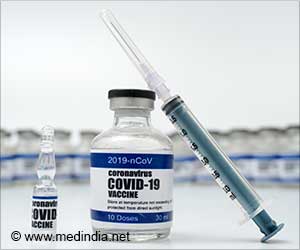- Personalized genetic diets can lower blood sugar levels in pre-diabetics
- A personalized dietary approach can be effective, potentially complementing standard guidelines in preventing diabetes
- This method could be a key approach for healthcare professionals in averting chronic conditions and enhancing public health
A carefully planned diet plays a pivotal role in managing diabetes by influencing blood sugar levels and promoting overall health. The alarming rise in type 2 diabetes (T2D) cases worldwide has prompted researchers to explore innovative strategies for prevention.
A recent pilot study conducted by Imperial College London in collaboration with DnaNudge has shown promising results in utilizing genetic information to tailor personalized dietary advice for individuals at risk of developing T2D (1✔ ✔Trusted Source
Assessment of the impact of a personalised nutrition intervention in impaired glucose regulation over 26 weeks: a randomised controlled trial
). It delves into the potential implications for public healthcare, and the need for further research.
Advertisement
Revolutionizing Diet Plans: Genetic Insights to Combat Pre-Diabetes
The pilot study involved 148 individuals with high blood sugar levels, categorized as pre-diabetic, who were at risk of progressing to T2D. The participants received personalized dietary advice based on their genetic profiles, along with face-to-face coaching from healthcare professionals.
The effectiveness of this approach was compared to the standard dietary coaching based on the National Institute for Health and Care Excellence (NICE) guidelines, which are currently the standard of care in the UK.
The study found that individuals receiving genetically-informed dietary advice experienced a more significant reduction in blood glucose levels compared to those following standard NICE-guided advice.
The intervention group, incorporating genetic data into dietary recommendations, demonstrated a substantial reduction in fasting plasma glucose (FPG) and glycated hemoglobin (HbA1c) levels at 26 weeks compared to the control group. The exploratory group, guided by DnaNudge’s app and wearable device, also showed improvements.
Did you know?
Nutrigenomics is the study of the relationship between nutrition and the human genome. Examining one’s DNA can help determine which diet would be most appropriate for an individual’s health.
Advertisement
Implications for Healthcare
The researchers emphasize the potential of genetic data in predicting an individual’s risk of developing diet-related chronic conditions, such as T2D. This personalized approach to dietary recommendations could offer a more effective intervention, complementing or enhancing existing standard guidelines.
The study suggests that incorporating genetic information into lifestyle interventions could be a valuable tool for healthcare professionals in preventing long-term conditions and improving public health.
Read More to Know About ‘Diabetes Diet Plan’
Advertisement
Challenges and Future Directions
Despite the promising results, the researchers acknowledge the study’s limitations, including its small sample size and the need for larger trials to validate the findings. The influence of genetic risk factors in comparison to other biological and socioeconomic vulnerabilities, as well as racial and ethnic disparities in healthcare access, is also noted.
To address these concerns, the researchers plan to conduct a larger, multi-national trial with thousands of participants, ensuring diverse representation to validate and generalize the results.
In conclusion, the study represents a significant step toward incorporating genetic information into personalized dietary interventions for preventing Type 2 Diabetes.
If validated, this approach could provide a cost-effective and widely distributable tool for improving glucose regulation in high-risk individuals, offering new hope in the global fight against the escalating diabetes epidemic.
Reference:
- Assessment of the impact of a personalised nutrition intervention in impaired glucose regulation over 26 weeks: a randomised controlled trial – (https://www.nature.com/articles/s41598-024-55105-6)
Source-Medindia



